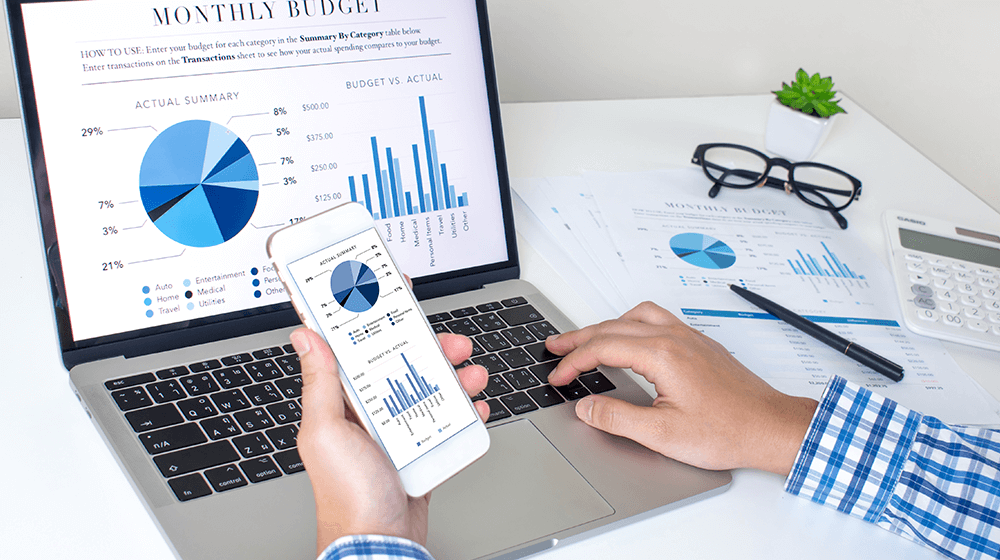- Grow a small business easily by preparing a well-structured business plan and legal and financial advisory.
- Digital presence is one of the essentials for starting a business and witnessing its rapid growth.
- Using the services of legal and financial advisors facilitates decision-making processes.
- Reliable and accessible payment processing systems enable customer satisfaction and boost business success.
- Customer satisfaction and interaction are essential for business sustainability and growth and can be achieved using CRM systems.
Small businesses are treated as the economy’s backbone because of their contribution across various economic dimensions. They bring diversity and vitality into markets by implementing new ideas, creating numerous job opportunities and encouraging economic growth.
Targeting specific niches and unserved markets, they address unique needs that larger companies might overlook. This may be why small businesses are deeply rooted in their communities. Their connection with the locals often results in innovative approaches and a bigger problem-solving mindset.o0
Yet, owners face numerous challenges – from limited resources to regulatory hurdles. One of the challenges is not knowing how to start a business correctly. This is why learning the small business essentials will help you reduce the risks and challenges you’ll encounter.
15 Small Business Essentials
Are you facing a dilemma about where to start to convert your incredible idea into a scalable business? We bring you the list of things needed to start a small business to prepare you for your new business adventure.
Business Plan
Creating a well-structured business plan is among the top essentials for starting a business. It is a helpful tool to define business goals, outline strategies and secure funding sources. At the same time, you’ll have a comprehensive overview of the viability, growth potential and operational roadmap. A well-prepared business plan includes the following:
- Executive summary
- Financial projections
- Competitive strategy
- Market analysis
- Marketing plan
Legal Structure
The next small business essential is choosing the business’s legal structure. It helps to determine the liability, taxation and general framework and is in alignment with your risk tolerance and growth objectives. You can choose between:
- Sole proprietorship – owned and operated by one person, with unlimited personal liability and pass-through taxation
- LCC – it’s a pass-through entity for taxation purposes where members have personal liability protection
- Corporations – a complex business structure where shareholders have a strong liability shield but with the potential for double taxation
Business Licenses and Permits

Lawful operation requires a lot of paperwork. Depending on the industry, some specific laws and regulations must be followed. To run a small yet lawful business, research local requirements and possess proper application documentation. This means getting all the necessary industry-specific permits and licenses.
Website and Online Presence
The list of things needed to start a small business won’t be complete without a great website and consistent online presence. A user-friendly and SEO-optimized website will enhance your business visibility. But this won’t be enough. An active social media profile with consistent branding and regular updates will help increase and maintain audience engagement, resulting in loyal customers.
Brand Identity
Pay special attention when creating the brand’s identity. It involves designing a distinctive brand logo, choosing an appealing color palette and defining consistent brand guidelines. Create an image of a serious brand with a recognizable visual and written identity that will get you noticed among competitors. The brand identity is also how customers notice the brand and connect with you. An outstanding package design with a unique typography will also attract attention.
Accounting Software

Financial management is high on the list, requiring accounting software. Easily track all expenses, ensure accurate records and effectively generate reports. When choosing the software, look for the following features:
- user-friendly interface
- financial reporting
- invoicing features
- data security
- scalability
- real-time insights
- bank integration
- tax preparation support
Marketing Strategy
Once you complete the above essentials for starting a business, prepare a well-defined marketing strategy. Clearly defining and connecting with a target audience will enhance the brand’s visibility. You should also use your social media presence to engage existing customers who become loyal to the brand. Reach out through diversified communication channels and use SEO-optimized content.
Customer Relationship Management (CRM) System
CRM systems were designed to facilitate the workflow of every business. These platforms help business owners manage their customer data, delivering actionable insights and contributing to better team performance and communication. This small business essential helps analyze customer interaction and improve good customer relationships. Introducing automation in your work leaves you time to focus on scaling your business.
Payment Processing System
These systems take care of digital payment transactions – from processing cards to bank and consumer account communications. They are a great way of protecting your business and your customers’ data.
Using diverse payment processing options is quick, effective, convenient and secure. Debit and credit cards, digital wallets, mobile pay, bank transfers, and others are the different types of processing systems considered essential for starting a business.
Inventory Management Software
An inventory management tool is one of the things you need for a small business. They monitor stock levels to avoid shortages while ensuring efficient operations. Their advanced inventory tracking features include stock level optimization and reduction of overstocking/ understocking, barcode scanning, real-time tracking, and more.
E-commerce Platform
An e-commerce platform is also on the list of things needed to start a small business. This content management platform is usually used to manage and register purchases of products. E-commerce websites also use it for managing their relationship with online retailers. These platforms are basically everything businesses need to build and run their online store in one place.
Communication Tools
Using diverse communication tools increases the customer and stakeholder experience and helps maintain consistent communication. Emails, messaging apps, social networking and video conferences can enhance efficient business communication. As they offer global reach, cost saving, and real-time problem-solving, implementing diverse communication tools is one of the things you need for a small business.
Legal and Financial Advisors
Legal and financial matters are usually tricky and may be outside your field of knowledge. Hiring expert advisors who can provide small business accounting tips is essential for starting a business. They can help you make informed decisions for any legal dilemma, such as licensing or trademarks, or advise you on how to make smart investments resulting in higher ROI.
Insurance Coverage

Having peace of mind, secure business finances and liability coverage are also essential for starting a business. Insurance coverage will protect your business from unexpected risk while ensuring resilience. This will also result in continuity, regulatory compliance, and overall customer trust for your business.
Networking and Industry Associations
Running a small business requires active participation in industry events, local business groups, online forums and mentorship programs. Engaging with industry associations will provide valuable industry insights and strong and successful partnerships. Access to industry trends, peer support and knowledge sharing are important elements for making informed business decisions.
Small Business Essentials: Wrapping Up
Setting up business might be stressful and less enjoyable than imagined. That’s why implementing small business essentials is pivotal for achieving growth, sustainability, scalability and overall business success.
As a small business owner, assess your needs before investing in tools and resources to optimize your operation. Smart investing leads to easily overcoming any potential challenges and peacefully thriving in a competitive business landscape.

